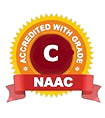
Vision, mission and quality policy
VISION:To evolve into a premier academic institution, recognized for its contribution to the pharmaceutical industry and the society through excellence in teaching, learning, academic achievements, research and entrepreneurship.
MISSION:Imparting technical education that encourages independent thinking that develops strong domain of knowledge, hones contemporary skills and Positive attitudes towards holistic growth of young minds and preparing graduates to be lifelong learners with strong analytical, entrepreneurship and leadership skills.
Transforming the pharmaceutical education through academic rigour, practical orientation and outcome based teaching. Undertaking impactful research addressing local, national and global issues and developing incessant “Industry – Institute” relationships that promotes research activities and employability of the graduates that can contribute to the economic and technological development of the region, state and the Nation.
Quality Policy: Nurturing the students with quality education and producing industry-ready candidates in field of pharmacy and allied health sciences.

